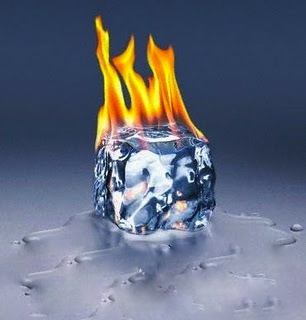
Lukewarm: An Investigation of Hot & Cold
Have you ever discovered you were wrong about something? Ok, maybe we’ve all done that. But, have you ever come to the realization that you believed something because someone else told you? You just went with their opinion, experience, or interpretation. This reality slapped me upside the head when I started digging into a well-known scripture that I had misunderstood for years.
Revelation 3:16, the lukewarm scripture. That is probably one of the top known scriptures amongst Bible-belt southerners. Now, I’m not sure what your interpretation is of that scripture, but I discovered that mine was wrong. If you want to hang out and dig in with me on this, run and grab your Bible or find this verse on your phone. And, a public service announcement, don’t take what I say as gospel. Test it out for yourself. Research it and come to your own conclusions. You might find another piece of valuable knowledge that the world needs to know. Now, on to Revelation 3:16.
“So then because you are lukewarm, and neither cold nor hot, I will spit you out of
my mouth.”
For clarity, according to the Greek definition, spit you out means to puke, hurl, barf, upchuck, toss your cookies, lose your lunch, call dinosaurs, drive the porcelain bus, etc.
But seriously, what does this scripture actually mean? I think to fully understand this passage we need a quick geography lesson.
This letter is to the Church of Laodicea. Laodicea was located in between two major Roman cities. It was about ten miles east of Colossae and about fifteen miles south of Hierapolis. You may be familiar with Colossae due to Paul’s letter to the Colossians. Colossae was a city situated at the foot of Mt. Cadnus in Asia minor, now present-day Turkey.
All three cities had their distinctions. People from distant regions came to soak in the hot springs of Hierapolis seeking healing for arthritis, skin diseases and even abdominal problems. In contrast, Colossae was known for its cold mountain water. People in the region, and from far away, were fond of this wonderful, invigorating, refreshing water.
Laodicea did not have a water supply other than the foul Lycus river. They built an aqueduct system and had the water transported from both the hot springs of Hierapolis and the cold springs of Colossae. By the time it reached Laodicea it was lukewarm, stale and stagnant. It was full of mineral deposits and tasted so bad that it actually made people sick.
The one thing that Laodicea appeared to have going for them was their wealth. They even told an emperor they were too good for his money when he offered to rebuild their city after an earthquake. They were also known for their soft wool and their healing eyesalve.
So, here’s what’s happening, I think. Jesus, who talked a lot in parables anyway, is using examples the Laodiceans can actually understand.
Read the scripture again, but this time, read the whole passage with the above information.
“I know your works: you are neither cold nor hot. I wish that you were either cold or hot! 16 So, because you are lukewarm, and neither hot nor cold, I will spit you out of my mouth. 17 For you say, I am rich, I have prospered, and I need nothing, not realizing that you are wretched, pitiable, poor, blind, and naked. 18 I counsel you to buy from me gold refined by fire, so that you may be rich, and white garments so that you may clothe yourself and the shame of your nakedness may not be seen, and salve to anoint your eyes, so that you may see.”
So what Jesus is saying is simple and profound and I think I’ve overthought it all these years.
See, I was always taught that hot was good, for Him, and cold was bad, against him. And, up until several years ago, I went with it. I didn’t dig in for myself. Until one night, while referencing this scripture in a conversation with my husband he asked, “Why is cold bad?” It caught me off guard and started an inquisitive search for me.
In our westernized, English speaking, Christian culture, “hot” is used to reference being “on fire” for God or having fervor. On the opposite end, “cold” often conveys someone who is cold-hearted, unfeeling, or spiritually dead. Unfortunately, we read these ideas into this text and deduce that hot is good and cold is bad. However, the intended audience would never have presumed this.
The Laodiceans knew exactly what Jesus meant. They understood He was referencing their water being useless by the time it reached them. And, they were aware He was relating that to their deeds. The Church of Laodicea was devoid of providing healing for the spiritually sick or invigorating refreshment for the spiritually weary. Jesus rebuked them for their distasteful, lukewarm habits.
In the verses that follow, Jesus continues His rebuke, calling them out on their prideful self-sufficiency due to their wealth. His riches were not good enough for them. They were spiritually blind and He wanted them to see. Again, two more references to something they would have been very familiar with. The Laodiceans seemed to desire everything but Christ. They seemed to revel in their arrogant wealth and acted as though they needed nothing.
They knew he was saying your wool and eyesalve may be of excellent quality, but I am offering MY clothing for your nakedness and MY healing for your spiritual blindness. You are so caught up on self, being tied to the things this world gives you instead of wanting me, it’s gross and not useful. Gross like the nasty, mineral deposit filled, lukewarm water you have. It’s not good for anything of its intended purpose.
So, until several years ago, I did not appreciate the value of understanding the Greek translations of scripture. I certainly did not study in depth context for myself. And I generally just went with the interpretation of scripture as I was taught.
If you’re like me, I always thought that this scripture meant that Jesus wanted you to be with Him and for Him, “hot”, or against Him and far from Him, “cold”, but don’t ever be lukewarm.
I never realized He was saying cold and hot were both good because I didn’t understand the context of the scripture. I didn’t understand who He was writing to. I didn’t comprehend that the Laodiceans would 100% get what He was referring to. Maybe this isn’t news to you. But, it was to me all those years ago.
Then I had to rationalize in my head why I had viewed the scripture in this manner. The simple answer was, I let someone else tell me about my God. I left my knowledge in the hands of others? How many other things did I miss because of this?
This was a wake-up call for me. I call it my “Revelation revelation.” It matters that we try to understand the original language and the context of the scriptures. And yes, we have to make effort to dig for that. Not be content to let others be our translation of God’s word. Not let others set up our belief system for us.
Jude, in his letter, beseeches followers of Christ to “earnestly contend for the faith.” (Jude 1:3) In the Greek this breaks down to a root word of agonizomai which gives a picture of striving in an athletic contest or warfare. To contend as with an adversary. Well, y’all, I know a pretty sneaky adversary that likes to conceal the truths of God from us in hopes that we will never fully understand His mysteries. Are we being lukewarm by not contending? Are we letting the comforts of this world cloud our NEED to contend? If you are always going off of someone else’s interpretation instead of your own then you are missing what God wants to tell YOU.
To wrap up this lukewarm passage, Revelation 3:19 says “Those whom I love, I reprove and discipline, so, be zealous and repent.” Sit with Jesus for a while. Ask Him to show you where you are lukewarm and plead him to help you contend for His truths.
Peace, Love, Shalom.
